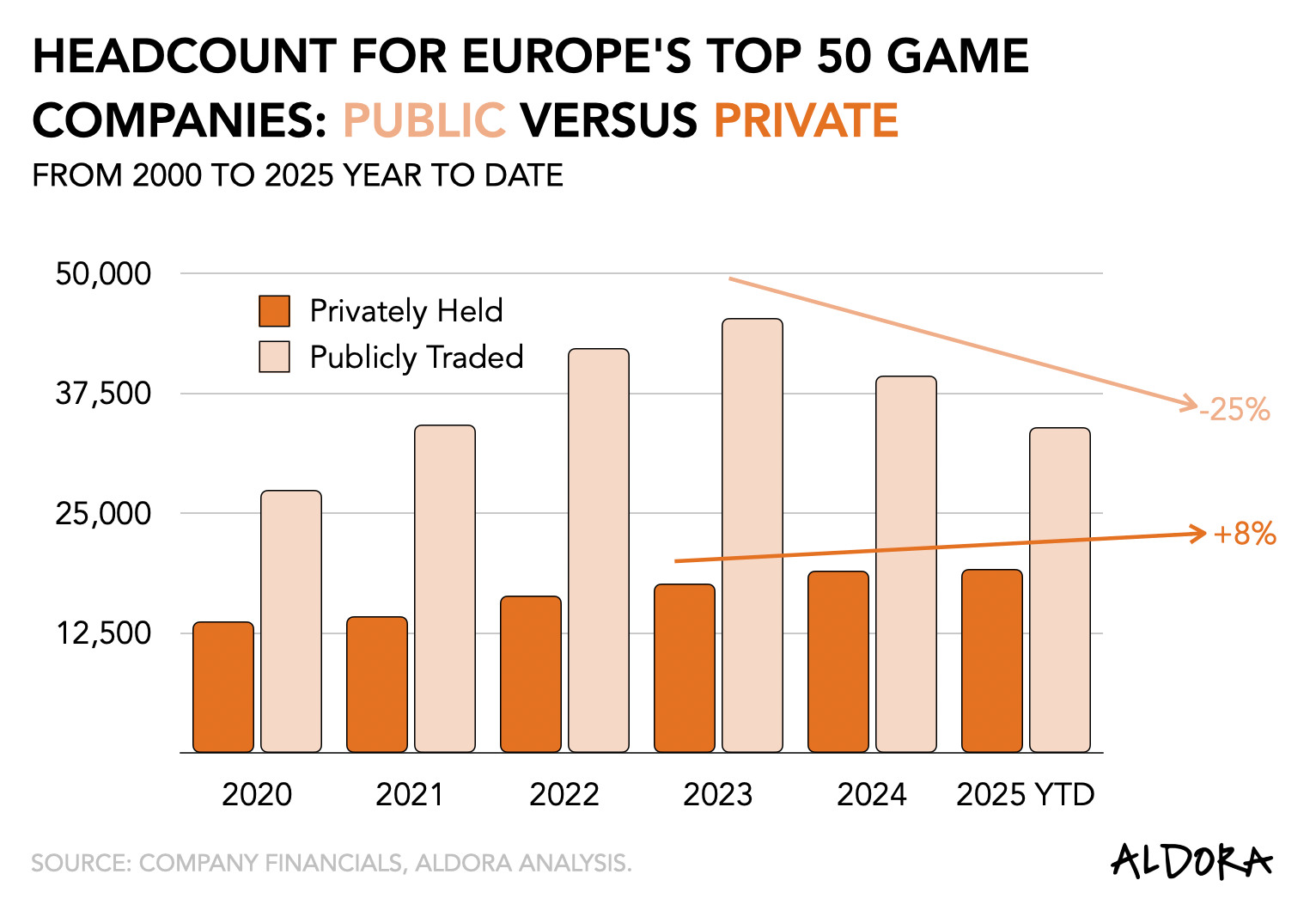Analyst: In Europe, private gaming companies continue to expand their workforce, while public ones are laying off staff
Analyst Aldora Joost van Dreunen examined the changes in staffing at the 50 largest European gaming companies in recent years. He noted that the crisis in the industry did not prevent private publishers and developers from growing steadily—unlike their public counterparts.
Star Wars Outlaws
For reference: public companies are those whose shares are traded on the stock exchange. For example, Ubisoft, Embracer Group, and CD PROJEKT. All others are private companies.
According to van Dreunen's observations, since 2023, the workforce of the private gaming companies he analyzed has increased by a total of 8%. Meanwhile, that of public companies has decreased by a quarter.
Van Dreunen believes this situation arises from investor pressure and generally differing approaches to business management.
"When revenues fall, public companies resort to the most obvious lever: layoffs. It is quick, it is measurable, and Wall Street understands it. Private companies deal with similar challenges by reallocating resources, pausing projects, or simply enduring low margins for one or two quarters […]. The ownership model dictates labor strategy. Public companies operate as financial instruments and optimize operations for liquidity and to meet investor expectations. In contrast, private companies operate as product companies, prioritizing creative control and long-term vision," van Dreunen concluded.
The analyst noted that not all private companies avoided layoffs. Nevertheless, these are the overall trends.

